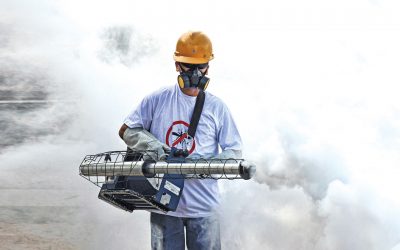Multiple sclerosis (MS) is a complex and unpredictable condition that affects the central nervous system – one day you can be fine, the next you may lose your sight and be unable to move. There are more than 100,000 people living with MS in the UK and quite often people will start experiencing symptoms in their 20s and 30s, such that people who are affected will be so for the majority of their adult life.
Charities such as the MS Society are important in helping those living with MS and the charity works tirelessly to improve treatment and care for patients whilst investing in research to help beat MS for good. The MS Society is the biggest charitable funder of MS research in the UK and last year alone, they invested £5.2million into research.
One example of this is studies being carried out at the MS Society Cambridge Centre for Myelin Repair at the University of Cambridge.
Researchers, led by Professor Robin Franklin, are working to show that a molecule called RXR-gamma could encourage the brain’s own stem cells to repair myelin in animal models of MS. They are now building on this work, to identify more potential treatments for the condition.
Research is also being carried out at the University of Edinburgh and uses translucent minnow-sized fish called zebrafish to work out how a protein in the blood could be causing the body’s immune cells to attack the central nervous system causing MS.
It was after hearing about this pioneering research that Helen Karakashian, from the Rotary Club of Droitwich Spa decided to adopt the MS Society as her chosen charity when she was president of the club.
“I was diagnosed with MS in 1980 and I’ve experienced almost every symptom anyone with MS can have – loss of eyesight, paralysis, slurred speech. In the 80s it was very different. There wasn’t much information, nor were there treatments available. This research is really exciting and has great potential, and I think it’s really important we explore the possibilities in this area.
“My fellow Rotarians and members of the local community also thought stem cell research was worthwhile supporting, so I organised two fundraising events in aid of this research funded by the MS Society. One of the events I hosted was an Ascot ladies lunch. This was just one event that contributed to the £2,100 we raised for MS research over a year.”
Helen is not alone in her support of the MS Society. Over at the Rotary Club of Babbacombe & St Marychurch, Kathy Uglow chose to support the charity in her year as president after her eldest son was diagnosed with the disease in his early 20s.
Kathy explains: “We arranged two ‘high-flying’ events – a skydive and a zip wire – that raised £19,000 for the MS Society, the skydive was amazing. We had 19 participants including Rotarians, friends and people with MS. Ten members of the MS Society also joined us. The youngest person skydiving was 15 and the eldest was in their 70s, and we had people with all abilities participate. It was such a huge challenge for so many people and they all showed incredible courage, jumping 15,000 feet at a freefall speed of 120mph. I even jumped myself – it was the highlight of my year!
“I’ve watched research into MS progress over the years, seen the breakthroughs in treatment and I’m happy that our club will play a minute part in something so much bigger.”
One person who has benefited from the money raised by Rotary is Deirdre Walford who was diagnosed with MS when she was 33 and was worn down with terrible pain and stress when she applied to the MS Society for a grant ten years later.
Deirdre has to deal with constant pain and fatigue, which she describes as “utterly shocking” and like “trying to function while half asleep”. Recently, it’s also led to problems with memory loss and word recall. She’s forgotten the names of her sons and husband and who they are. During one relapse, she couldn’t even remember who she was.
She used an MS Society grant to fund a trip to Berlin with her family, who are all affected by the stresses and challenges that come with the condition – the trip allowed them to spend time together, recharge and go home ready to cope again.
Deirdre comments, “It’s hard to fight all the time. Not only is MS eroding me physically, but the continually determined fighting is wearing me down mentally. We took a five-day break in Berlin at Christmas and the break enabled me to recharge my batteries enough to see in the New Year with enthusiasm. I feel so much better and stronger, it seems that I had fallen over and you lovely people helped me up, cleaned me down and put me back in the right direction. I am ready to fight MS again in the next round.”
Andy Jarrett, Area Fundraiser at the MS Society and member of the Rotary Club of Severn Vale, said: “Rotary International in Great Britain and Ireland has been an active supporter of the MS Society since 1989, and today, many clubs and individual Rotarians across the UK dedicate their time and resources to support our work.
“We are extremely grateful for their contributions, which have had a profound impact on the lives of people affected by MS. Just last year, Rotary donated almost £30,000 to the MS Society which has helped give grants and support to people affected by MS, fight for better care and find better treatments.”


























































